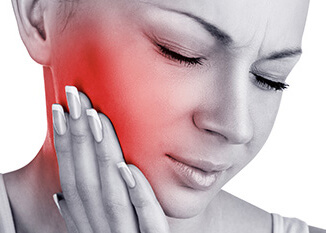Temporomandibular Joint Disorders
The Temporomandibular Joint is nothing but a jaw joint which allows all possible movements of the lower jaw. You have two jaw joints one in front of each ear and work together as a pair. All the problems such as jaw pain, headaches, neck, shoulder, and back pain are because of the dysfunctioning of the jaw joint.
What Are The Temporomandibular joint Disorders?
This is a complex condition includes pain in the jaw joint and the surrounding tissues. Sometimes a “click sound” while the opening of mouth limiting the jaw movements. These may lead to various health problems if not identified and treated earlier.
Why does Temporomandibular Disorder happen?
There could be various reasons a patient develops TMJ disorders, few of the most common causes are:
- Improper tooth restoration
- Jaw joint injuries
- Arthritis
- Autoimmune diseases
- Bruxism or clenching of teeth
- Other factors such as genetic or hormonal
Are You A candidate Of TMJ disorder?
- Have habit of clenching or grinding the teeth
- Wake up with pain, stiff muscles around your jaws
- Have frequent headaches or neck pain?
- When you clench your teeth, pain get worse
- Jaw clicks or lock when you open your mouth
- Difficulty or pain when open your mouth, eat or yawn
- Neck, head or jaws injury
- Joint problems
- Have teeth without any contact when biting
- Difficulty in biting with your front teeth
- You have sensitive, loose, broken or worn teeth
Treatment
Once an examination of your jaw confirms TMJ disorder, we plan the proper course of treatment. There are multiple treatment options utilize to improve the harmony and function of your jaw.
The main aim of a dentist is relieving the muscle spasm and joint pain of a patient. This can be done with the help pain reliever, anti-inflammatory or muscle relaxant.
The self-care treatments which is helpful which are:
- Resting of your jaw
- Do not let your teeth touch if you are not swallowing or eating
- Eat soft food
- Apply heat
- Jaw exercising
- Good body posture
Some of the stress management techniques like biofeedback or physical therapy are recommended which is used as a temporary. Application of clear plastic appliance known as a night guard which keep your upper and lower teeth apart help to avoid clenching, relaxing the muscles and reduce pain.
Surgery is generally recommended for the patients with severe jaw locking symptoms and pain not responding to conventional and medical treatments. Surgical procedure includes rising of the joint and helps to reduce pain and locking symptoms. This procedure does not require any incision on the face.
